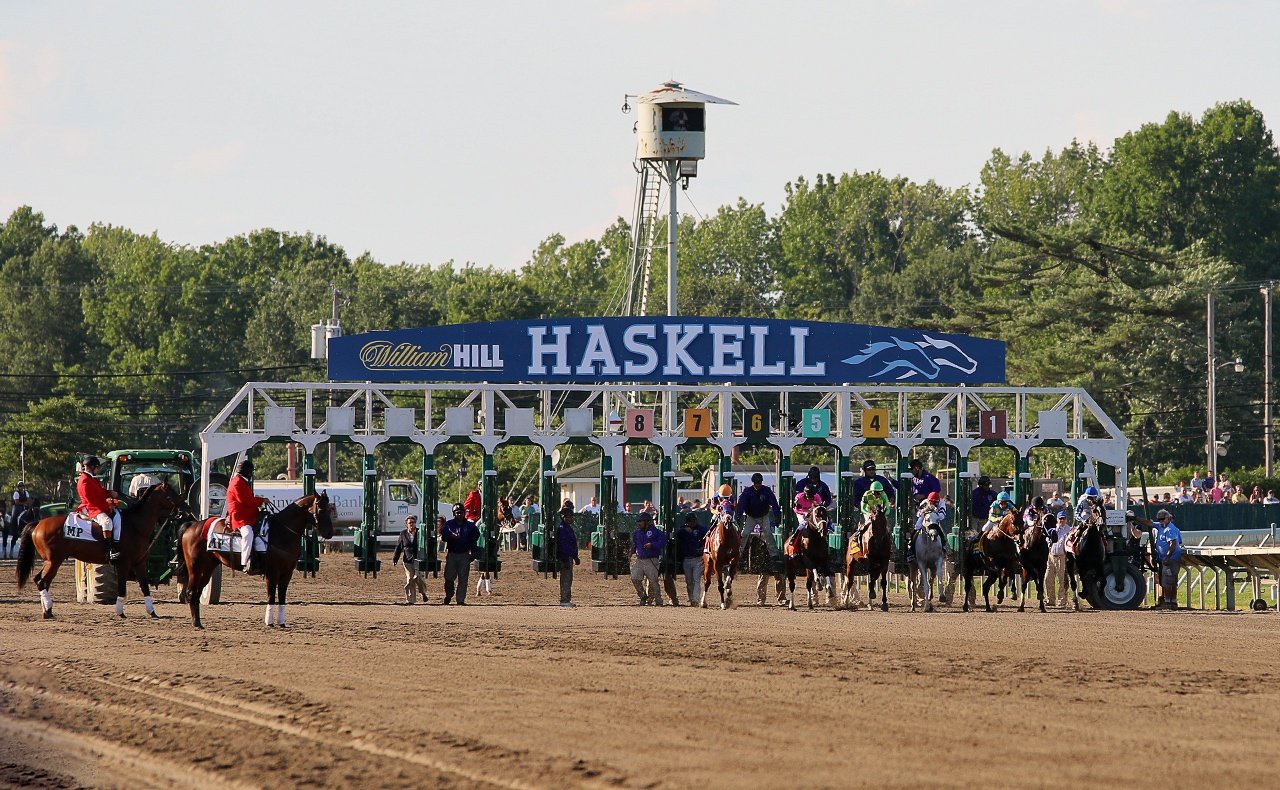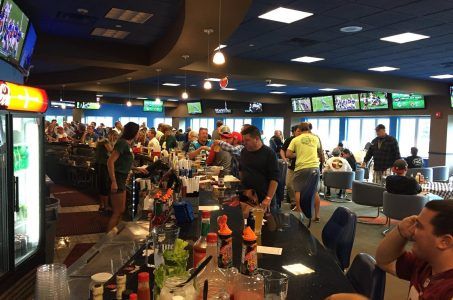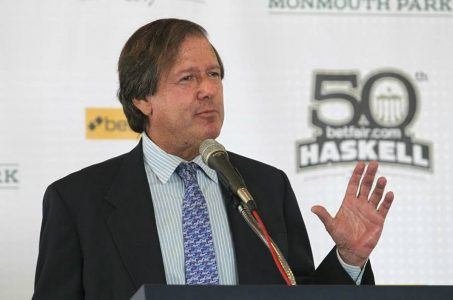New Jersey Horsemen Entitled to Damages in Historic Sports Betting Case, Appellate Court Rules
Posted on: September 25, 2019, 11:22h.
Last updated on: September 26, 2019, 10:28h.
The New Jersey Thoroughbred Horsemen’s Association (NJTHA) scored a victory against five sports leagues and governing bodies in a federal appellate courtroom on Tuesday.

In a majority decision, the US Third Circuit Court of Appeals ruled the association was harmed when the National Collegiate Athletic Association, the National Basketball Association, the National Football League, the National Hockey League, and Major League Baseball sought to stop them from offering a sportsbook at Monmouth Park, the Oceanside track it leases from the state.
That case ended up before the US Supreme Court, where in May 2018, the justices made the landmark ruling overturning the Professional and Amateur Sports Protection Act. That opened the way for legalized sports betting across the country.
While the case was making its way through the courts, the sports leagues posted a $3.4 million security bond as part of the temporary restraining order (TRO) they were granted. Federal law in civil cases requires parties seeking an order to put up a financial sum that would cover damages sustained by an entity that falls under the order.
NJTHA had a right to conduct sports gambling all along,” US Circuit Judge Midge Rendell wrote in the majority opinion. “We conclude that NJTHA was wrongfully enjoined and should be able to call on the bond.”
Tuesday’s ruling vacated a lower court decision that kept the association from obtaining the bond money. In its order, the Circuit Court judges sent the case back to the US District Court in New Jersey to determine how much the NJTHA should receive.
There is no time frame for when the district court may take up the case. The sports leagues may also ask for a rehearing in the next two weeks.
‘It’s All Positive’
The injunction was ordered five years ago, shortly after New Jersey passed its law legalizing sports betting. The order kept Monmouth Park from opening a sportsbook as it had planned as a result of the legislation.
Based on its calculations, the NJTHA believes it is owed $150 million, which it claims is the damages from not being able to take sports bets at Monmouth Park dating back to 2014.
When that figure was brought up in the appellate court hearing back in July, the judges put aside that discussion, saying the figure itself was not germane to the question brought before them.
Dennis Drazin, chairman and CEO of Darby Development, told The Asbury Park Press the ruling served as good news. Darby Development runs Monmouth Park for the NJTHA.
“It is what we were looking for,’’ he said. “Not only to state our case, but it says we are entitled to damages. So, proving exactly how much those damages are and having an opportunity to state the case on bad faith, so it’s all positive. The horsemen will collect some money.’’
Dissenting Judge: Order was Still Valid
Not all the appellate judges felt the New Jersey horsemen were entitled to any damages.
Circuit Judge David Porter said the restraining order was based on the ruling that New Jersey’s sports betting law was not compliant with PASPA. Even though the Supreme Court found PASPA unconstitutional, Porter noted in his opinion that the justices still sided with the District Court on the validity of the order.
“Had the District Court based the TRO on the constitutional question ultimately decided by the Supreme Court, I would view this matter differently,” Porter wrote. “But that is not what happened here.”
Related News Articles
Most Popular
LOST VEGAS: The Foster Brooks Robot at MGM Grand
Bally’s Sets Date for Tropicana Las Vegas Implosion & Party
Most Commented
-
VEGAS MYTHS RE-BUSTED: You Don’t Have to Pay Resort Fees
— August 2, 2024 — 16 Comments -
VEGAS MYTHS RE-BUSTED: Elvis Was a Straight-Up Racist
— August 9, 2024 — 11 Comments -
ANTI-SOCIAL BEHAVIOR: Vegas Casino Buffet Stunt in Poor Taste Goes Viral
— August 16, 2024 — 7 Comments -
VEGAS MYTHS RE-BUSTED: The Strip Tried Appealing to Families and Failed
— August 23, 2024 — 7 Comments
















No comments yet